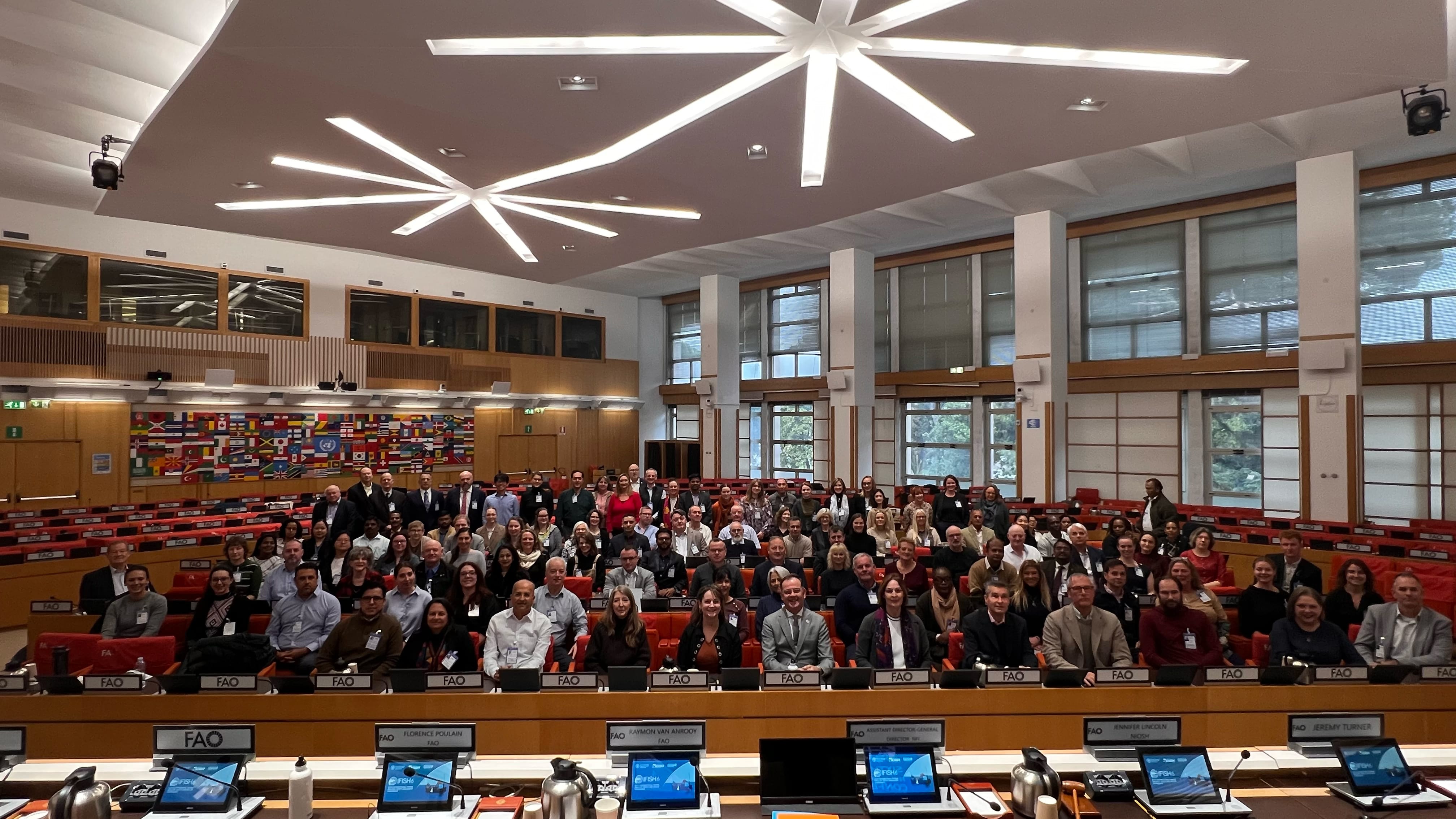The 6th edition of the International Fishing Industry Safety and Health Conference (IFISH) focused on small-scale fisheries

Rome - The International Fishing Industry Safety and Health Conference (IFISH) is the world’s only conference devoted to safety and health in fisheries and aquaculture. It’s 6th edition, from 8 to 12 January 2024, was organised by the Food and Agriculture Organization of the United Nations (FAO), the National Institute for Occupational Safety and Health (NIOSH) and the Northeast Centre for Occupational Safety and Health (NEC).
The conference, which drew together over 160 participants from government, research, industry, and worker organizations from over 31 countries, started with a pre-Conference workshop led by the United Nations agencies working on safety and health, namely the International Labour Organization (ILO), the International Maritime Organization (IMO), the World Health Organization (WHO) and FAO. All four agencies reiterated their commitment to continue working together on these issues and promoting international safety standards, including the FAO Agreement on Port State Measures (PSMA), the Code of Conduct for Responsible Fisheries and the Voluntary Guidelines for Securing Sustainable Small-Scale fisheries in the Context of Food Security and Poverty Eradication (SSF Guidelines).
Chapter 6 of the SSF Guidelines explicitly calls for States to “recognize that improved sea safety, which includes occupational health and safety, in small-scale fisheries (inland and marine), will best be achieved through the development and implementation of coherent and integrated national strategies”.
In his opening speech, Manuel Barange, ADG/NFI Director, expressed concern about the number of fatalities at sea, most of them in small scale fisheries: “Small-scale fisheries employ 90% of those working in the capture fisheries value chain, yet they receive less attention in terms of vessel construction, safety standards and safety training programmes for crew”.
The discussions pointed out that there is still a divide between large scale and small-scale fisheries when it comes to safety thus the need to develop solutions that are cost effective, scalable, and locally available were stressed.
In his keynote speech Below the Radar: Safety aspects of small-scale fisheries in South Asia, P Krishnan, BOBP-IGO Director, called for a wholesome safety measure that address all aspects of working condition of fishers including fisheries management, appropriate technology, economic incentives and enabling governance.
During the five conference days, participants showcased their research and solutions, and exchanged with other experts to improve safety and health in the sector. The Conference highlighted the need to tailor occupational safety and health (OSH) to the needs of women who constitute 50 percent of the sector, and to develop standards and safety and health codes for aquaculture.
The conference concluded with the creation of an IFISH Innovation Exchanges to facilitate innovation and the dissemination of solutions in fisheries, aquaculture and seafood processing.
For more information, access:
- IFISH Conference
- Safety at Sea for small-scale fishers
- Voluntary Guidelines for Securing Sustainable Small-Scale Fisheries in the Context of Food Security and Poverty Eradication
- Agreement on Port State Measures (PSMA)
- Code of Conduct for Responsible Fisheries
